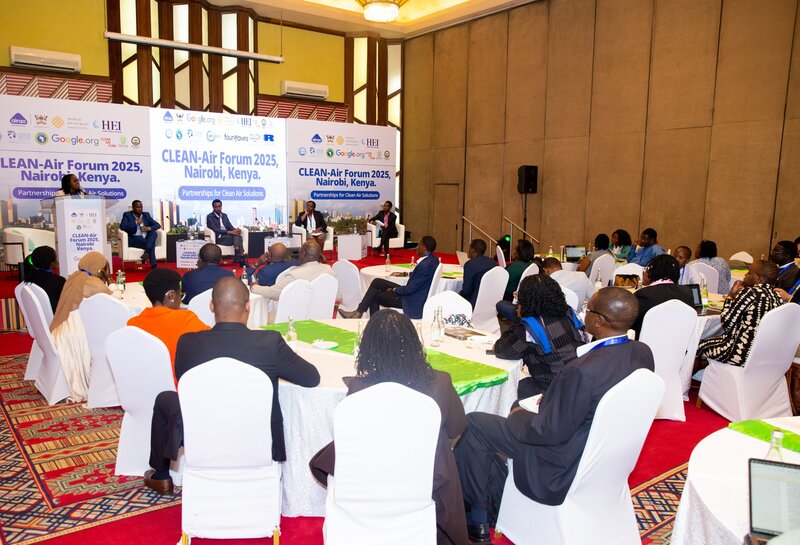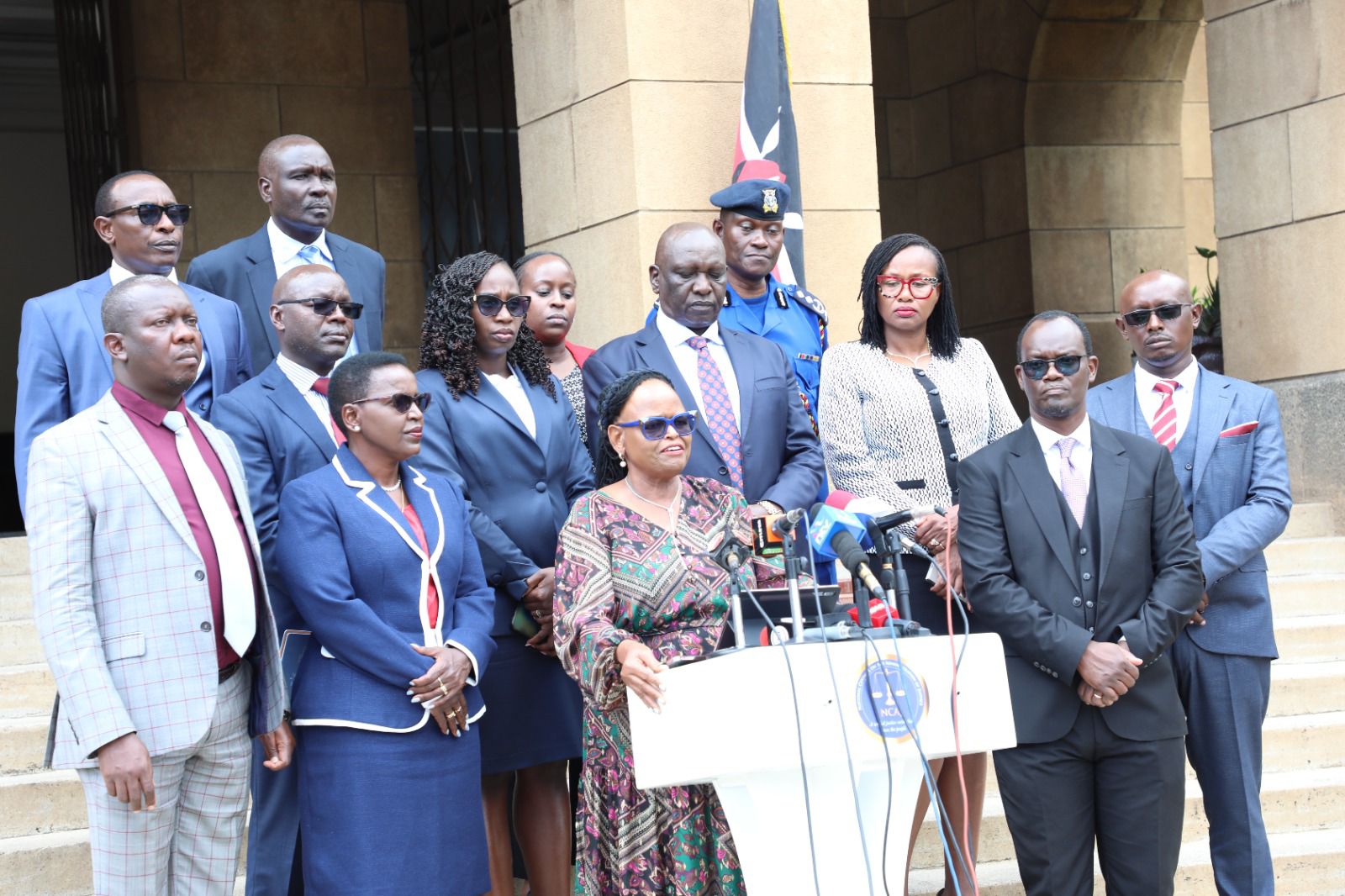Over 600 air monitors deployed as Africa’s pollution fight gains ground

The Breathe Cities Nairobi initiative, launched in September 2024, aims to cut air pollution by 30 per cent by 2030 compared to 2019 levels. Nairobi is one of 14 global cities participating in the program, which is also supporting the development of stronger air quality laws and action plans.
The campaign to tackle air pollution in Africa is picking up pace, with more than 600 air quality monitors now installed in different cities, including a brand-new, city-owned network launched in Nairobi.
These sensors are part of a growing drive to collect reliable air quality data that can guide informed decisions on health, transport, and urban planning.
More To Read
- Millions of hectares are still being cut down every year. How can we protect global forests?
- COP30 delivers mixed results on climate action, WEF experts say
- Managing conflict between baboons and people: what’s worked - and what hasn’t
- Kenya, Sweden partner to curb billions lost in post-harvest food waste
- UNEA-7 opens in Nairobi as global environmental diplomacy faces major challenges
- 2025 set for second-hottest year on record
At the Clean-Air Forum held in Nairobi, AirQo Principal Investigator and Lead Engineer Bainomugisha shared how the journey began modestly with three devices mounted on a motorbike in Kampala a decade ago.
“They enabled us to have the coverage of the entire Kampala. We were not sure how they were going to work. But fast forward 10 years, we've been able to deploy about 600 devices across the continent,” he said.
He noted that AirQo had planned to expand into two countries per year over the past three years and ended up going beyond that target. Kenya was among the early beneficiaries after Uganda.
Bainomugisha emphasised that access to clear and open air quality data is crucial for researchers and policymakers.
“It starts speaking with the numbers and evidence. When we talk about data, we all strongly advocate that we need to have open data. Everyone knows that we should have data that is open and accessible,” he said.
He added that data from various sectors must be linked to strengthen arguments, especially in the health space.
“We need to be able to track how many vehicles we have in the city, what types of vehicles are paid, and how they are contributing to emissions,” Bainomugisha said. “Countries must take initiatives to measure and track our progress.”
He called for countries to commit fully to sharing data and to work under a common framework.
“Sometimes it gets lost when we say we are all committed to sharing data, but I think as a community we need to agree on the common practices on how we need to do this,” he said.
With Artificial Intelligence increasingly shaping how data is used, Bainomugisha described information as a new resource that needs proper management and sharing.
In Nairobi, the push for cleaner air took a major step with the launch of the city’s first air quality monitoring network, which was unveiled on June 11 at City Hall. Governor Johnson Arthur Sakaja presided over the launch, which saw the deployment of 50 city-owned sensors aimed at tracking pollution hotspots and supporting data-driven policies.
“This milestone marks a turning point in our commitment to improving air quality management. By deploying a city-owned air quality monitoring network, we are taking bold, practical steps to ensure that every Nairobi resident has access to cleaner, safer air. This is a vital investment in the well-being of our people and the future of our city,” said Governor Sakaja.
The Breathe Cities Nairobi initiative, launched in September 2024, aims to cut air pollution by 30 per cent by 2030 compared to 2019 levels. Nairobi is one of 14 global cities participating in the program, which is also supporting the development of stronger air quality laws and action plans.
In 2019, air pollution was linked to approximately 2,500 premature deaths in Nairobi. By 2023, the city’s PM2.5 levels were four times higher than what the World Health Organisation (WHO) advises.
The new network offers real-time pollution data to help change that.
Dr Victor Indasi, the Breathe Cities Lead in Kenya, said, “The occasion today is both fulfilling and inspiring, as we witness this important milestone just about 10 months after the official launch of the Breathe Cities initiative in Nairobi.
"The deployment of the Nairobi City-Owned Air Quality Monitoring Network signals a new chapter in our collective efforts to tackle air pollution. We look forward to the effective use of this network to inform both policy and the public, ushering in a new era of data-driven air quality management for our city.”
Maureen Njeri, County Executive Committee Member for the Green Nairobi Sector, reaffirmed that the county government is committed to using the network effectively to bring lasting improvements in air quality across Nairobi.
Top Stories Today

















































